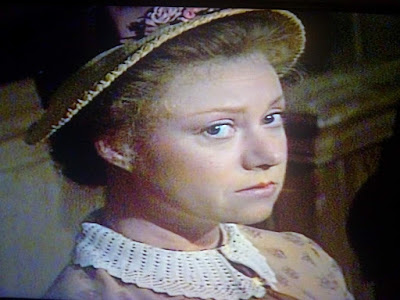First performed: 1973, Shubert Theatre, NY
First seen by me: 1989, Piccadilly Theatre, London
Productions seen: five
Score: Stephen Sondheim
Score: Stephen Sondheim
Book: Hugh Wheeler
Plot: In 1900 Sweden, actress Desiree and lawyer Fredrik are two former lovers who rekindle their feelings for each other when she visits his town on a theatrical tour; however they are now paired with Anne, Fredrik's teenage bride, and Desiree's jealous lover Count Carl-Magnus. Matters come to a head during a weekend party at Desiree's haughty mother Madame Armfeldt...
Five memorable numbers: SEND IN THE CLOWNS, THE MILLER'S SON, A WEEKEND IN THE COUNTRY, EVERY DAY A LITTLE DEATH, THE GLAMOROUS LIFE
Well, here are... the Top 10 Musicals; these are the ones whose scores mean the most to me. We start with yet another Sondheim for a very good reason... he is my favourite musical composer.
After COMPANY and FOLLIES had shaken up the Broadway musical in the early 1970s with explorations into what could be done with the form, composer Stephen Sondheim and producer/director Hal Prince were in no mood to stop. They revisited an idea they had in 1964 when they wanted to create a modern take on an operetta-style romantic musical and decided to do an adaptation of Jean Anouilh's RING AROUND THE MOON but Anouilh said no - and said no again after they told him they had writer Hugh Wheeler on board! Sondheim suggested two films that had a similar theme: Jean Renoir's THE RULES OF THE GAME and Ingmar Bergman's SMILES ON A SUMMER NIGHT as both feature a weekend country house party with romantic intrigues and jealousies enveloping both guests and servants. Sondheim decided the Bergman had a subtlety that lent itself more to becoming a musical - and luckily Bergman agreed to the adaptation, his only stipulation being it be given a new title. Hal Prince once described NIGHT MUSIC as "whipped cream with knives" but Sondheim is of the opinion that Prince was more interested in the former, he the latter. Indeed what makes it such an interesting show is that all the characters are dissatisfied with something or unhappy at an other - they may be in love but it causes as much pain as pleasure - and Hugh Wheeler's witty book runs deceptively deep, something Sondheim has only grown to appreciate in the fullness of time and over many revivals. Sondheim later asked Ingmar Bergman if he ever saw the show and was surprised when Bergman said he had and enjoyed it, brushing aside Sondheim's apologies about changing certain characters by saying "We are both eating from the same cake". Oh and the cherry on that cake? Soon after it opened, Jean Anouilh's 'people' contacted Hal Prince to say that the rights for RING AROUND THE MOON were now available - too late Jean!
Sondheim went into rehearsals with most of the score written but added - and subtracted - more along the way. The rousing Act 1 closer A WEEKEND IN THE COUNTRY was written during the rehearsal period when Hal Prince felt all the story lines had to come together to send the audience out on a high; this also gave Sondheim the opportunity to write the song tailoring it to the cast's specific voices, and speaking of which... Sondheim and Prince has assumed they would cast a comedy actress for the lead role of Desiree who probably wouldn't be able to sing too well, and eventually decided on Glynis Johns who, they discovered, was able to sing in a breathy, delicate style. Sondheim had given Desiree two duets in Act I and nothing in Act II but it was decided Glynis Johns had the musicality to be given a solo in the second act. Hal Prince re-directed the scene to focus it on her while Sondheim turned up after two days with SEND IN THE CLOWNS. Knowing her range meant she could not sustain long notes, he devised the song to comprise of short questions "Isn't it rich? Are we a pair?" that would fit on her voice perfectly.... the rest is history! The show ran on Broadway for 18 months, was nominated for 12 Tony Awards and won 6 including Best Musical, Best Score, Best Book and Best Actress for Glynis Johns. The London premiere was in 1975 with the dazzling cast of Jean Simmons, Joss Ackland, Hermione Gingold, David Kernan, Maria Aitkin and Diane Langton; the London cast recording remains my favourite with several definitive renditions especially Diane Langton as Petra, the practical maid, tearing the roof off with THE MILLER'S SON.
So which SEND IN THE CLOWNS will it be? Despite memorable versions by Glynis Johns, Bernadette Peters, Barbara Cook and Angela Lansbury, for me it's Judi Dench in the 1995 NT production, seen here over the end credits of a South Bank Show profile. It's not a good transfer but Dench delivers a nigh-on definitive rendition where every word comes straight from Desiree's broken heart...












































